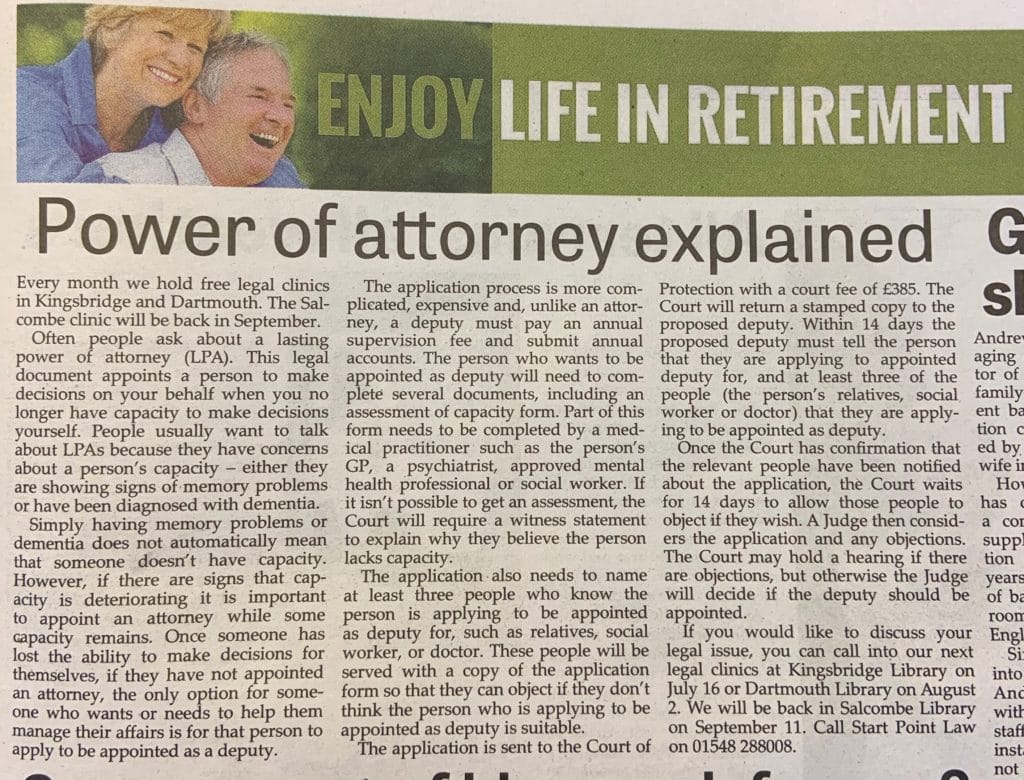
What happens when you don’t appoint an attorney?
Every month we hold free legal clinics in Kingsbridge and Dartmouth, the Salcombe clinic will be back in September.
Often people ask about a lasting power of attorney (LPA). This legal document appoints a person to make decisions on your behalf when you no longer have capacity to make decisions yourself. People usually want to talk about LPAs because they have concerns about a person’s capacity, either they are showing signs of memory problems or have been diagnosed with dementia.
Simply having memory problems or dementia does not automatically mean that someone doesn’t have capacity. However, if there are signs that capacity is deteriorating it is important to appoint an attorney whilst some capacity remains. Once someone has lost the ability to make decisions for themselves, if they have not appointed an attorney, the only option for someone who wants or needs to help them manage their affairs is for that person to apply to be appointed as a deputy.
The application process is more complicated, expensive and unlike an attorney, a deputy must pay an annual supervision fee and submit annual accounts. The person who wants to be appointed as deputy will need to complete several documents including an assessment of capacity form. Part of this form needs to be completed by a medical practitioner such as the person’s GP, a psychiatrist, approved mental health professional or social worker. If it isn’t possible to get an assessment the Court will require a witness statement to explain why they believe the person lacks capacity.
The application also needs to name at least 3 people who know the person is applying to be appointed as deputy for, such as relatives, social worker, or doctor. These people will be served with a copy of the application form so that they can object if they don’t think the person who is applying to be appointed as deputy is suitable.
The application is sent to the Court of Protection with a court fee of £385. The Court will return a stamped copy to the proposed deputy. Within 14 days the proposed deputy must tell the person that they are applying to appointed deputy for, and at least 3 of the people (the person’s relatives, social worker or doctor) that they are applying to be appointed as deputy.
Once the Court has confirmation that the relevant people have been notified about the application the Court waits for 14 days to allow those people to object if they wish. A Judge then considers the application and any objections. The Court may hold a hearing if there are objections, but otherwise the Judge will decide if the deputy should be appointed.
If you would like to discuss your legal issue why not drop into one of our free legal clinics?


